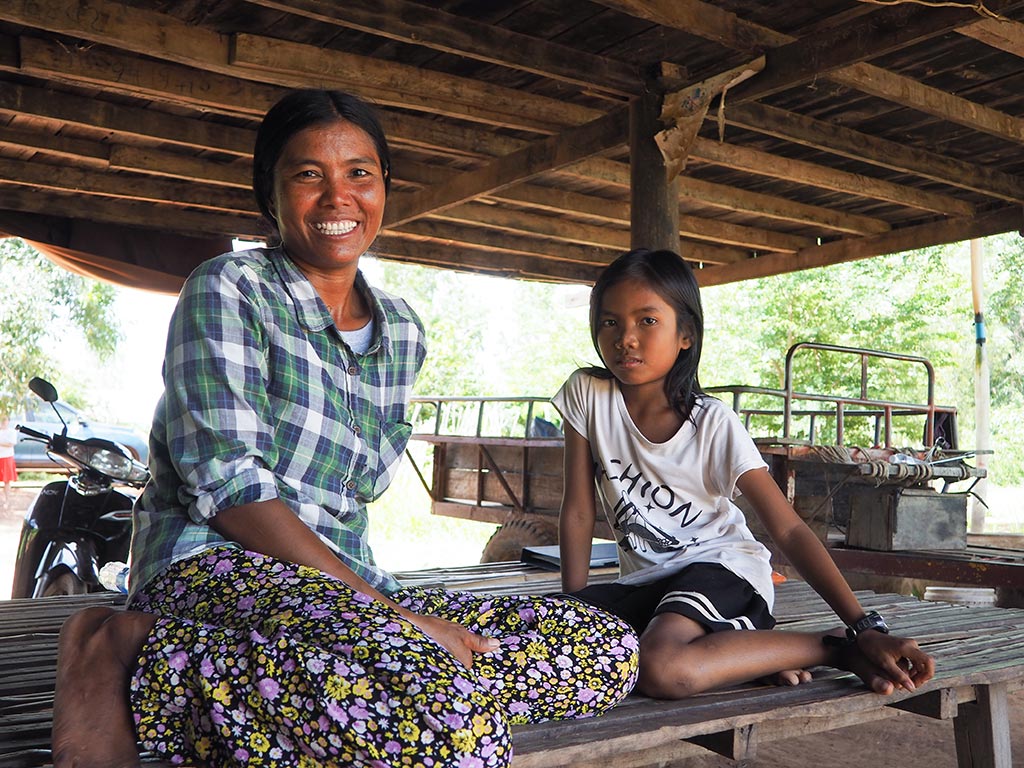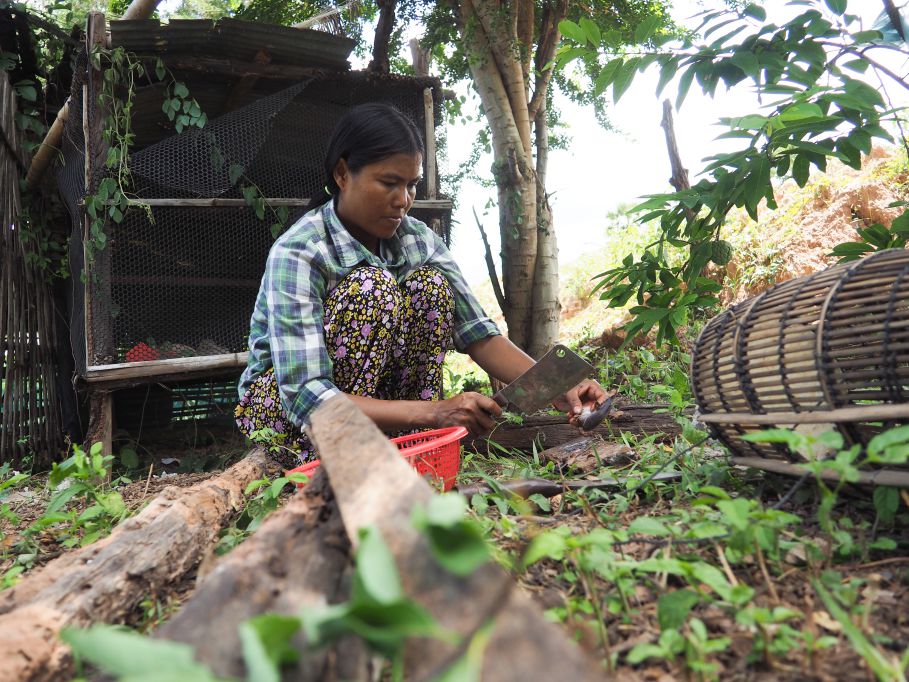Climate migrant women in Italy strive for equal opportunities

Morb Neam, a 37-year old Cambodian, has been traveling back and forth to Thailand since her childhood, after each wave of bad weather. “We were very poor and my sister had no money to pay for my school, so I left early,” she says. Morb has gone back to her home village in Cambodia, in the Khmer province of Banteay Meanchey, to take care of her children and ensure they get a good education. She can’t read nor write – Credit: GeorgeNickels/ArchivioWeWorld
By Elena Comelli, Corriere della Sera (Italy)
Sunita* moved to Italy from the Indian state of Punjab. She left home after losing her land due to climate change and now she works as a farmhand in the Italian region of Agro Pontino, south of Rome. Half the year she works with a regular contract, then two months off the books, in order to send money home and pay back her travel debt. The rest of the time she spends with her young son, but, she says, “Life is hard for a single mother with a young child and no husband, in a foreign country… people see a woman on her own and they think she must be ‘easy’.”
Sunita is just one of the many immigrant workers who get exploited on a daily-basis through a ruthless network of illegal labour. And because she’s a woman, and a mother, everything is harder. Sunita doesn’t know it, but women have been hit disproportionately hard by climate change, according to experts. They are doubly affected because they take on the humblest and worst paid jobs, like searching for water in extreme drought conditions. Women are most likely to be the ones left behind to look after the children and the elderly, while men leave home to look for work wherever climate conditions are better. And if they manage to seek employment abroad, they are often the first ones to fall into the trap of human traffickers or pushed into prostitution on the streets of European cities.
Sunita’s story shows how the climate crisis does nothing but deepen the gender inequalities already affecting women. This is one of the key messages spread by the awareness raising campaign launched by young Europeans on climate poverty, #ClimateOfChange, under the leadership of WeWorld, an NGO that has been fighting for the past 50 years to defend the rights of women and children in 27 countries around the world. WeWorld is also very active in Italy, supporting the farm workers of Agro Pontino, where Sunita works.

Credit: GeorgeNickels/ArchivioWeWorld
A #ClimateOfChange pan-European street tour will stop in Milan on 1-2 October, during Pre-Cop26 — an event held in Milan in those dates, leading up to the UN’s climate conference COP26— and will bring to town a contemporary circus show aimed at highlighting the links between climate change and migration.
“The stories of the women we meet working hard on the farms of southern Italy fit into a patriarchal economic system that is firmly rooted in their countries of origin and is often maintained once they reach their final destination,” says Elena Caneva, director of WeWorld research centre. “Back home in their countries, these women are forced to walk many miles each day, carrying a lot of weight on their shoulders, in order to find the means to sustain themselves, especially after extensive flooding or drought. And they are therefore unable to attend school. They are constantly victimized and discriminated against,” she explains.
Once they leave their village to find work elsewhere, their conditions do not improve a great deal. Whereas formal equality between man and woman has been established in most countries and in many legal systems, the age-old distinctions between productive and reproductive duties still prevail, even in the West. In theory, these women are strongly encouraged to join the workforce, but at the same time they are expected to carry the full weight of looking after their households and children. “On average, over 75%of unpaid care work is carried out by women, and women spend far more time than men in unpaid care work in every area around the world,” points out Ms. Caneva.
In Sunita’s case, she didn’t choose where to go. She was sent to Italy by her family and now she finds herself facing the same adverse conditions as so many Italian working women with dependent children. Plus, she has to cope with all the difficulties of being an immigrant in a very harsh working environment, where illegal labour, exploitation and gender violence are rife — which only accentuates even more the inequalities she experienced to begin with.
But not all illegal migrations lead to exploitation. In many cases, migrant women can become key players in a changing world, provided they are offered the right opportunities to reach their objectives. The WeWorld Index 2020 – which compares and classifies the living standards of women and children in 172 countries around the globe, according to their level of inclusiveness – stresses the need to move on from simply recognizing women’s rights to their practical implementation, through the development of individual capacities.
(* Name changed to protect identity)

This article is being published as part of “Towards Equality”, an international and collaborative initiative gathering 15 international news outlets to highlight the challenges and solutions to reach gender equality.




